TechRadar Verdict
VPN One Click is speedy and cheap for single mobile devices, but there are too few features and too many problems to seriously recommend the service.
Pros
- +
Above average performance
- +
Mobile and desktop clients
- +
Cheap for a single mobile device
- +
Free 7-day trial
Cons
- -
DNS leaks
- -
Subscriptions cover one device only
- -
No features
- -
Terrible Windows client
Why you can trust TechRadar
One Click is a popular provider which delivers a basic VPN service for a budget price.
Experts may not be impressed by the technical specs. There's no support for the configurable and secure OpenVPN protocol, for instance – instead, you're left with L2TP/IPSec, IKEv2 and the horribly insecure PPTP.
The network is a reasonable size at least, with around 50 countries on offer, although there's some confusion about this on the website. (The Servers page claims location in 'as many as 50 countries', then lists only 29.)
Platform support seems more straightforward, at least, with downloads for Windows, Mac, iOS and Android.
- Want to try VPN One Click? Download it here
The website is a little disappointing with few low-level details on the service. Instead it seems more of a marketing exercise aimed at novice users, and it's not particularly successful even at that level.
The low prices may seem appealing, at least initially. Android and iOS devices are charged $2.99 a month or $1.50 over a year. Windows and Mac devices must pay $4.99 a month or $2.08 over a year.
This sounds great, until you realize that you're charged separately for each device. $1.25 a month for an Android device alone (on a yearly subscription) could be a real bargain, but add a single PC and that jumps to $3.33. For comparison, Private Internet Access' annual plan charges only $3.33 a month to support up to five devices, and it doesn't care what they are or how you mix them up.
If you're intrigued, there's a free 7-day trial for mobile devices, but beware, it only supports connecting to Germany and Netherlands servers. It'll give you a basic feel for the apps and the sort of performance you might get, but that's all.
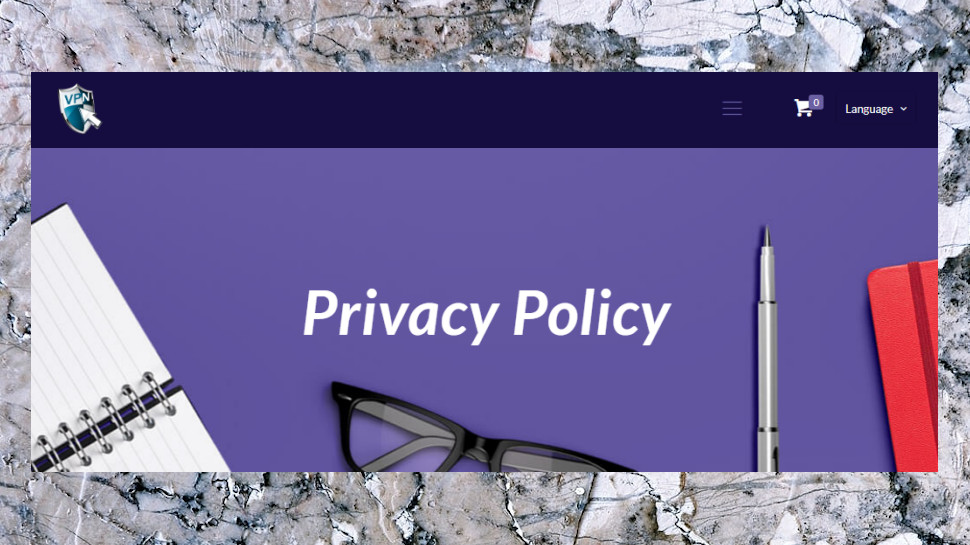
Privacy
The VPN One Click privacy policy has improved significantly since our last review, and, at last, gives users details they may want to know.
'We have a strict no-logs policy', the company explains. 'We do not store user’s connection logs or internet activity. We do not store, record or monitor any information related to user’s browsing activity, session details, timestamps, bandwidth, traffic logs, etc.'
Unconvinced? The policy goes on: 'Users can download, install and use our application without any registration or sign-up process, and hence any personal information like email or mobile number is never requested.' Even if the service does log some details of your internet activities, it's not going to be easy to link them to you.
VPN One Click says all the right things, but like most smaller VPNs, it hasn't gone through any form of privacy or security audit to verify its procedures. Is it really doing what it says? Your guess is as good as ours.
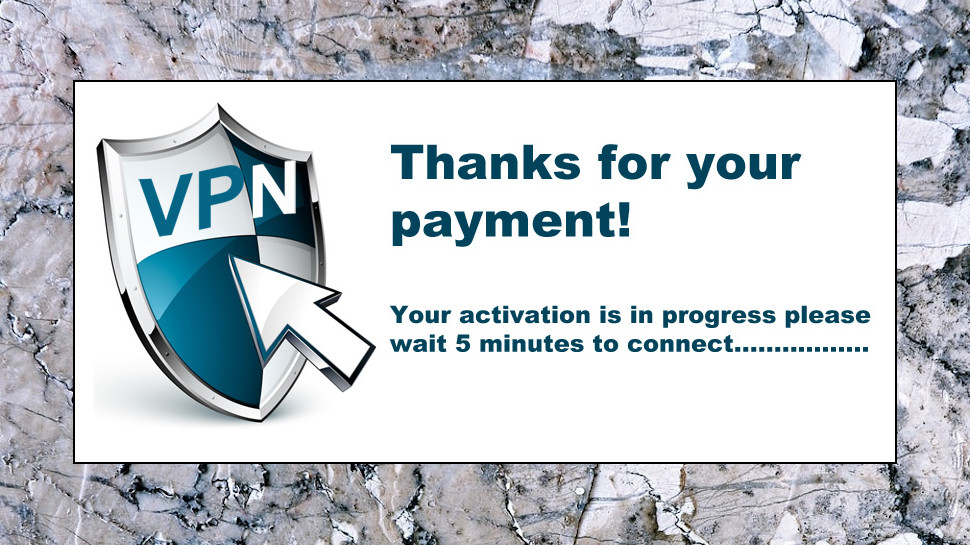
Setup
Getting started with VPN One Click is as easy as downloading the client for your desktop or mobile device.
We noticed one unusual issue in VPN One Click pointing its Windows download link to the third-party Download.com, rather than hosting the installer on its own site. That's a small concern, because a VPN provider can't guarantee the integrity of its Windows installers if they're hosted by someone else.
Even if the risk is tiny, it looks cheap - VPN One Click is happy you're exposed to the danger, just to save a little bandwidth on its website. We don't know any major VPN which does this, so why does VPN One Click think it's acceptable?
We grabbed the Windows client anyway, and the installer set it up in a few seconds with no issues or complications at all.
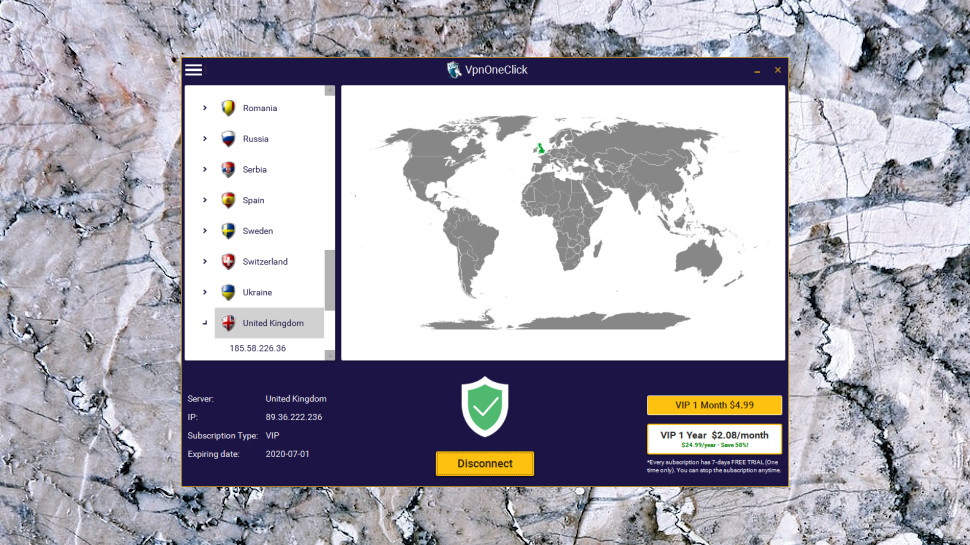
The client has a good-looking interface, with a world map, lists of servers organized by continents and a clear status pane displaying details on current location, IP address and subscription status.
For all the client's visual style, it doesn't have much substance.
The map doesn't show the server locations, for example. It's not clickable, and can't be zoomed or scrolled.
The nested server list keeps every location at least two clicks away, so for instance you must click Americas > United States to see the American servers. And it doesn't remember your last choice, so you'll need to repeat this every time you launch the client.
Each location is displayed as an IP address rather than as a city. European users might prefer to connect to New York rather than going cross-country to California, for instance, but all they'll see are options like 165.227.9.19 and 107.170.216.7. Some of the clients are a little better – the Android offering labels servers as United States West or United States East – but that's still less detail than you'll get with most providers.
The client doesn't give you any ping times or server load data on individual locations, and there's no favorites system to help you save locations for speedy access later.
We tapped the Buy button and a browser window opened at an anonymous looking api4weather.com site, before quickly redirecting to PayPal and asking us to pay our subscription to Bravotelco Limited.
This all seems a little anonymous. We hadn't downloaded the client from the VPN One Click site; we're not familiar with api4weather.com and we don't recognize the Bravotelco Limited name. We suspect most customers would much prefer to sign up via a shopping cart on the official VPN One Click site, just as reassurance that their money is going to the right place.
Being forced to pay via PayPal isn't convenient, either. If you were won over by the website claim that you can pay via Bitcoin, you might wonder why that option isn't available from the client.
After handing over our payment a website message (from the even more anonymous apissl.b1zx.com domain) explained that the new account would be activated within five minutes, but in reality it only took a few seconds. We returned to the client, clicked 'Refresh Account Info' on the menu and our subscription instantly updated from 'Expired' to 'VIP'.
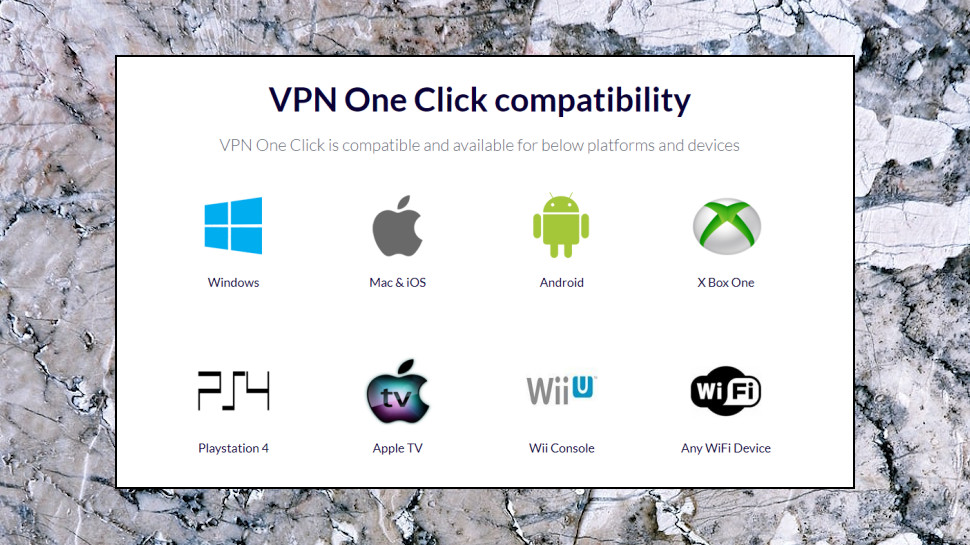
Apps
Subscription paid, we were now able to connect to any location by clicking it in the list. Unfortunately, the client didn't give us any audio or desktop notification to warn when it connected or disconnected. That's a problem, as it could lead to a situation where you think the VPN is active and protecting you, when in reality the connection has dropped.
It got worse when we closed the client window and found it didn't minimize to the system tray, but instead shut down the application while leaving any active connection open. This means you can still be connected to the VPN with having any visual indication of that, and it also suggests the client is making zero effort to monitor or manage the connection (most clients will close active connections if you shut them down).
We relaunched the client and found it didn't even recognize we were still connected. This is a big, big problem, as it shows you can't trust the client to accurately tell you when you're protected by the VPN, and when you're not.
With the app unable to deliver even the most basic features, you won't be surprised to hear that there's nothing more advanced. No protocol or port options, no kill switch, no DNS controls, no 'launch with Windows' option or ability to reconnect to the last-used server. The client doesn't even have a Settings box.
Our regular privacy tests revealed further issues, with both doileak.com and dnsleaktest.com reporting that our connections had DNS leaks.
We noticed one small piece of good news. The client established its connections using IKEv2, the most secure option it had available, and mostly set this up well (it didn't disable IPv6, leaving another opportunity for leaks, but we've seen worse issues.)
This can't make up for the lack of power and connection management, though. When a VPN connection drops unexpectedly, a good client will spot this, block network access immediately, alert the user and try to automatically reconnect. VPN One Click's Windows offering doesn't even realize there's a problem, and continues to tell users they're protected, even after they're exposed. That's really not good enough.
The Android app has a similar look and feel to its Windows cousin. The interface mostly uses IP addresses rather than city names, for instance, and it also has no settings or bonus features to help you customize how it works.
The app can at least benefit from Android's system-wide kill switch, though, making it much safer than the Windows version.
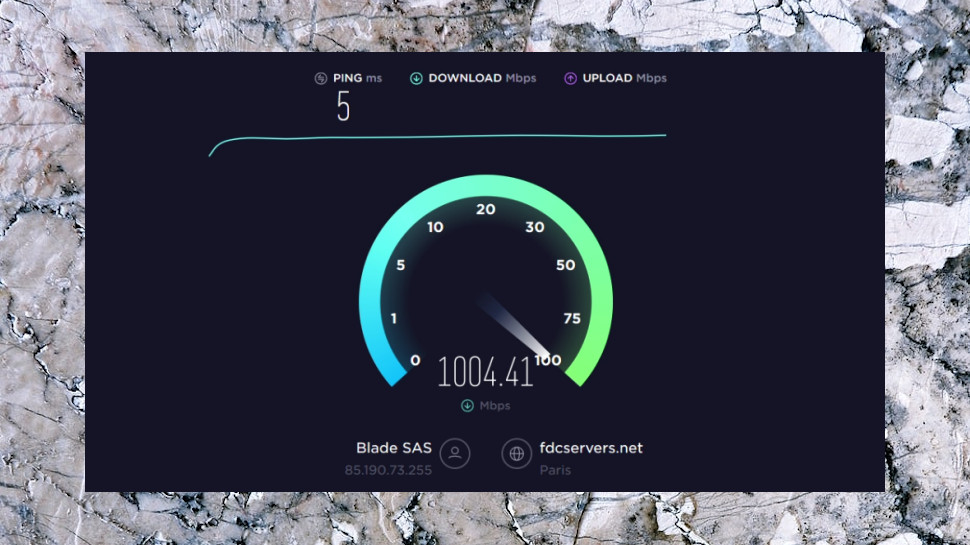
Performance
VPN One Click's unblocking performance was average at best, with the service getting us into BBC iPlayer, but failing with US Netflix, Amazon Prime Video and Disney+.
We've no complaints about performance, though, with our tests showing up to 66Mbps download speeds on a 75Mbps fiber connection via our nearest UK server. Near European countries reached up to 55Mbps, UK-US connections ranged from 30-35Mbps, and Asian servers were variable but with some highlights (over 30Mbps to India).
These figures aren't directly comparable with our regular tests and most other VPNs as they're using a different protocol (IKEv2 as opposed to OpenVPN), but overall, they're still very good results. VPN One Click is disappointing in many areas, but speed isn't one of them.
Final verdict
VPN One Click is fast, and could be a cheap way for undemanding novice users to protect a single mobile device. But if you're looking for features, or privacy, or power, or you need to protect desktops or multiple devices, you'll be much better off somewhere else.
- We've also highlighted the best VPN

Mike is a lead security reviewer at Future, where he stress-tests VPNs, antivirus and more to find out which services are sure to keep you safe, and which are best avoided. Mike began his career as a lead software developer in the engineering world, where his creations were used by big-name companies from Rolls Royce to British Nuclear Fuels and British Aerospace. The early PC viruses caught Mike's attention, and he developed an interest in analyzing malware, and learning the low-level technical details of how Windows and network security work under the hood.
